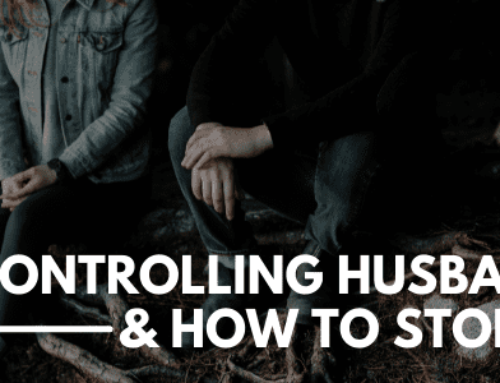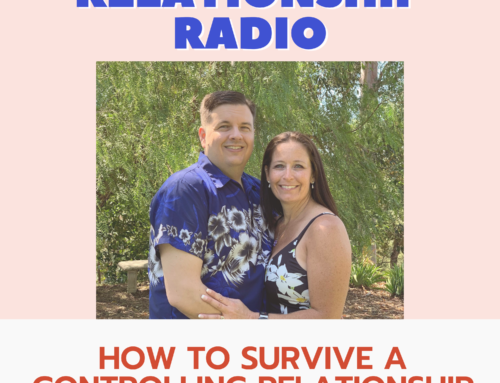Have you ever been in a situation where your spouse told you to do something or suffer the consequences? Have you ever given an ultimatum to your spouse? Is there a place for ultimatums in relationships? Can they be a helpful tool, or are they just another type of control?
Psychology Of Ultimatums In Relationships
An ultimatum says that a specific thing needs to stop or occur in a certain time frame; otherwise, a negative consequence will be the result. For instance, if you have a drinking problem, your spouse might demand that you stop by a particular day or go to AA meetings to assist you. If you can’t get your drinking under control, then the result might be separation or divorce.
Are ultimatums like this effective and a good choice? People react to demands such as this differently. In psychology, there is something called self-determination. It first begins to manifest itself in humans around the age of two when a child starts to realize they’re not a part of their parents anymore. They begin to gain their own identity and their freedom. Children begin to assert themselves at this age and make things about themselves. This self-determination is part of the reason they go through the terrible twos. This might sound like a bad thing, but they’re also learning to take care of and rely on themselves at the same time.
As we get older, if we’re forced to do things we don’t want to do, and we do them to avoid the negative consequences, that’s called avoidance motive.
Rejection And Resentment
Everyone does some things because of avoidance motives. For example, all of us instinctually slow down when we see a police officer on the road because we don’t want the consequence of getting a speeding ticket. And like in the scenario of your spouse telling you to clean the garage, there’s a little bit of avoidance motive in every relationship. As long as it’s not happening often, it’s not necessarily a big deal.
But ultimatums are a big deal. Demanding that your spouse do something or suffer significant negative consequences flies in the face of self-determination and avoidance motives. It’s not like slowing down to avoid a ticket; it’s major avoidance because you’re being asked to do something against your will.
This is often why people reject your ultimatum, even though they know the consequences are coming. Even if your spouse tries to follow your ultimatum to avoid the negative consequence, they’ll often wind up resenting it.
Your Motive Is They Key
The desire to follow your own free will is why ultimatums in relationships often get a negative response. However, that doesn’t mean that they don’t have their uses. There are times when you’re not trying to control another person, but you’re trying to get them to stop destructive behaviors or change the direction that your marriage is heading.
The scenario we mentioned demanding someone get control of their drinking issue is a perfect example. You’re not trying to control the person in this instance; you’re trying to get them to understand how bad their destructive behavior has become. You wouldn’t immediately go to an ultimatum, but it might be a valuable tool if you’ve had conversations and the situation continues to worsen. You wouldn’t want your spouse to be driving drunk with your children in the vehicle, so setting an ultimatum in your relationship for them to stop is reasonable.
There’s a simple line between a useful ultimatum and one that probably isn’t warranted. If you’re asking your spouse to treat you like a king or queen, that’s bad. On the other hand, if you’re asking them to change a destructive behavior to save your marriage, that’s reasonable. Understanding the motive behind the ultimatum makes all the difference, so be sure to think it through. Even though your spouse might react negatively initially, they will eventually see the benefit of it and hopefully thank you for it.
Setting Boundaries Can Save Your Marriage
Hopefully, this helps you understand that using ultimatums in relationships can be a helpful tool. Here at Marriage Helper, we use them when we’re talking about creating STOPs and COREs. We use STOPs when we talk about setting boundaries. COREs are the things that must happen for your relationship to continue to move forward. These are just some of the tools you’ll learn to use in our Definitive Guide to Boundaries Toolkit.
The Boundaries Toolkit will help you think through the idea of setting a boundary for things you feel can’t happen in your relationship and things that must occur in your relationship. In addition, it can help you determine when to use ultimatums, which ones are good, and which ones are bad. There are ten videos and a PDF workbook in the series that you can find here. These will help give you a step-by-step guide on how to create ultimatums.
Remember, the motive behind your ultimatum is what’s important. So use them wisely to keep your relationship growing.
If you feel like control is negatively affecting your marriage, you can download our FREE eBook here on how to stop a controlling marriage. If you’re feeling lost or unsure of what to do next, you can also get in contact with one of our Client Representatives here or call 866-903-0990 to discuss the next best steps for your situation.





